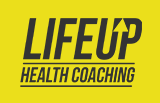
If you are making drinks at home, you likely aren’t measuring each pour. Recognize situations or environments that may lead you to drink more (like certain friends who like to party or Thursday night karaoke). And do your best to avoid or minimize exposure to these triggers—at least while you’re adjusting to a not-drinking period. Define why you want to cut back on or quit alcohol, and set specific, achievable goals, such as reducing the amount you drink or the frequency of your drinking. If you want to cut it out for Dry January or Sober October, be sure to hold yourself accountable for the month, too.
A drink that feels fancy or fun can go a long way

If you’re looking to reduce your alcohol intake, consider opting for low-strength alcoholic drinks or set a limit taking a break from alcohol for yourself. Choosing to live without alcohol not only reduces the risk of physical health problems but also mental health issues such as depression and anxiety. As well as existing non-alcoholic beer and wine, a range of non-alcoholic spirits is also emerging in the market. You could ask for it to be served in a spirit or cocktail glass – you might be less likely to be asked why you’re not drinking. Hello Sunday Morning has a large online support community of more than 100,000 people, and offers a range of resources to help people who want to cut down or quit drinking. It’s a free service, funded by the Australian government and a range of philanthropic organisations.
Tips to start reducing alcohol in your life

As your nervous system speeds back up once the alcohol exits your system, you may experience sleep disruption and wake up more throughout the night. This can lead to poor function and sleepiness the following day. “Insomnia is pretty common among people who abuse alcohol,” McGrath says. Irina Gonzalez is the Content Marketing Manager at Tempest, a digital membership program that empowers you to quit drinking and live alcohol-free. She is also a freelance writer covering parenting, recovery, and Latinx culture and the creator of the Pandemic Mama podcast.
What reducing alcohol can do for your health

Still, the findings were provocative, scientists say, and merit following up. Some who have given up booze altogether join “sober sometimes” friends to enjoy nonalcoholic drinks at Sans Bar in Austin, Texas. About 90% of heavy drinkers will develop alcoholic liver disease, while 20–40% will develop alcoholic hepatitis, which occurs when the liver becomes damaged and inflamed. Quitting alcohol for one month seems like a short time, but a 2015 study found that many people who participate in Dry January continue to drink less six months later. The “One Week No Booze Method” recently went viral on TikTok and participants are challenged to stop drinking for one week each month.
- Even if the goal is to cut down, abstinence can assist with lowering tolerance to ease moderation of use, and your body could use the break.
- If you’ve decided to take a break from drinking alcohol, you’re not alone.
- On a recent Friday night, Rob Zaleski and Kim Daniel walk into Marshall’s bar in Austin.
Stand back and ask: ‘How does drinking serve me?’
Another thing that will help your liver’s journey in recovery is good nutrition. There’s no miracle diet by any means, but the Mediterranean diet, for example, can help fill some of the nutritional gaps you may have due to alcohol use. If you https://ecosoberhouse.com/article/best-way-to-flush-alcohol-out-of-your-system/ suddenly have a craving for alcohol, try doing some vigorous exercise or doing something you love instead.
- Drinking can send your hormones into a frenzy—it impacts our endocrine system, which allows our body to respond appropriately and cope with changes in our environments.
- Whether for a short period of time or throughout the year, reducing alcohol by any amount affects your body in a number of ways.
- Either way, whether you’re fully committing to an alcohol-free lifestyle or just testing the waters, here are some tips to help you cut back or cut it out entirely.
- In the beginning stages of drinking, the experience and effect can be subtle on schoolwork.
- At the end of the day, one of the most important tools you have at your disposal is self-compassion.
